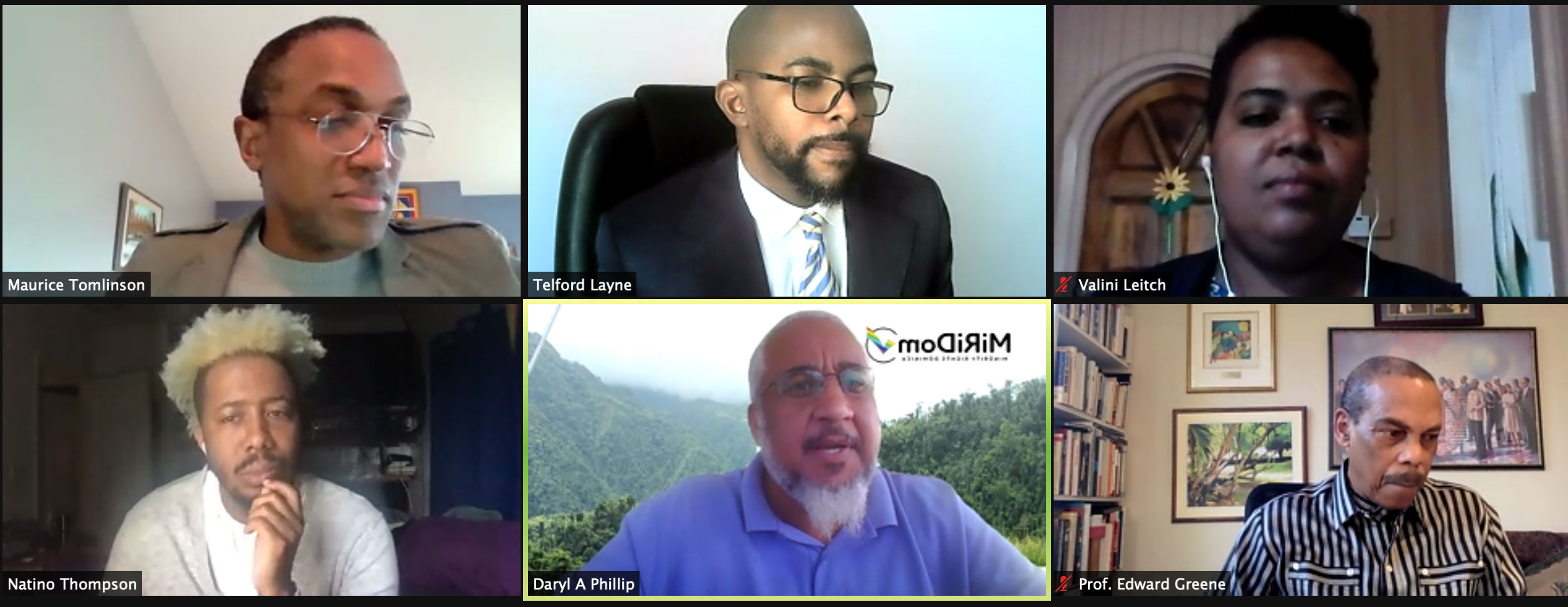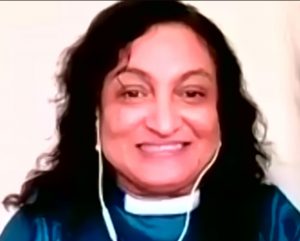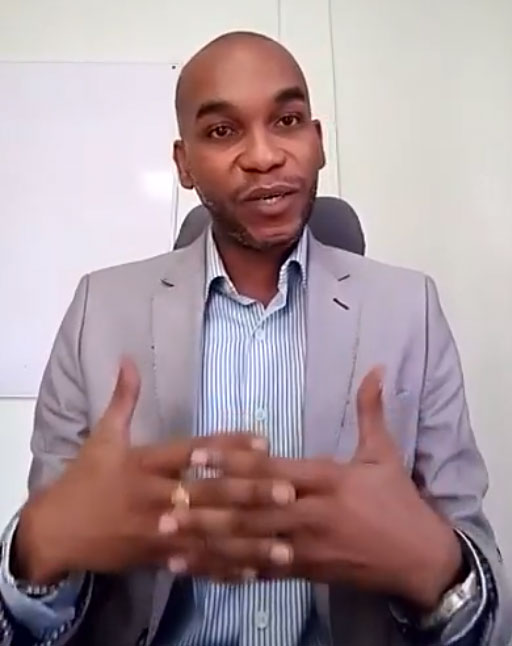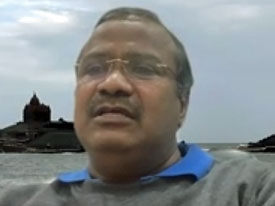‘LGBTQ church members are not loved as much as God wants’ (Day 2)
Colin Stewart is a 45-year journalism veteran living in Southern…
A gay Roman Catholic boy in Trinidad who gave up his faith to save his life. A conservative Christian in Guyana who used social media to blame gays for a traffic accident. Those were two of the examples discussed today in a conference about how churches affect the LGBTQ community.

Today was the second day of the conference, named “Intimate Conviction 2”, which builds on the work of a 2017 “Intimate Conviction” conference in Jamaica that focused on what needs to be done, especially by Christian churches, to put an end to dozens of countries’ laws against same-sex intimacy.
Discussions included how Christian churches persecute, neglect, discuss, interact with and sometimes comfort LGBTQ people in The Bahamas, Trinidad, Guyana, Dominica, India and the Philippines.
[Editor’s note from after the conclusion of the conference — Full video recordings are currently available online for:
- Day 1 of the conference,
- Day 2 of the conference,
- Day 3 of the conference, and
- Each individual speaker’s remarks.]
Notable remarks during today’s conference included:
Dr. Edward Greene, Chancellor, University of Guyana; Former UN Special Envoy for HIV/AIDS in the Caribbean, the day’s keynote speaker
The campaign to abolish anti-sodomy laws matters, Greene said, because those laws “are perhaps the greatest obstacle” to achieving justice for LGBTQ people. In recent decades, as the struggle for equality for sexual minorities has intensified, “social conservatives have increasingly cited sodomy laws as reasons for discrimination.”
Often the appeal for justice is met with the response “but the Bible says”. That statement becomes repulsive, because it is used as a shield for venom and hatred, Green said. Nothing in the Bible says that homosexuality should be criminalized while adultery and fornication are not, he added.
The statement “Hate the sin. Love the sinner” is “problematic for me. It denies the authentic personhood of LGBTI individuals,” he said.
Natino Thompson, Bahamian writer, pioneer, artist and activist
“The church has planted itself and its teaching as an obstacle to LGBTQ+ rights in The Bahamas,” Thompson stated.
“We tried to engage the church in dialogue, but many pastors simply refused,” he said.
“If someone refuses to engage with you, there’s nothing you can do until they’re willing.”
Conservative preachers threaten politicians with God’s judgment if they don’t do as the preachers demand, he said.
Rev. Patricia Sheerattan-Bisnauth, chief executive officer, Caribbean Family Planning Association, speaking as a minister of the Guyana Presbyterian Church

“Sexuality has been a discomforting subject for the Guyana Presbyterian Church, which finds it culturally and theologically challenging”, Sheerattan-Bisnauth said.
“We are all sexual beings, though we may not acknowledge it openly and are uncomfortable in expressing our sexuality, which has severe consequences on our sense of self and relationships, often resulting in violence and destruction.”
Telford Layne, a developmental psychologist and a leader of the Seventh Day Adventist Church in Guyana
“The church is the second-most powerful institution in the world behind the family”, Layne said, but the church makes people uncomfortable because of relationship issues and perceived hypocrisy. If the church takes sides on the issue of human sexuality, he said, it will stop being a place of hope.
The religious community needs to take a hard look at human sexuality, he said. People are different, but all are “wonderfully made.”
“How can preachers condemn sexualities they don’t really understand?”
“If Jesus were here today, he would embrace human rights and every person who is not like us.”
Luke Sinnette, lead social worker at Friends for Life, Trinidad and Tobago

Sinnette used his own experiences to make that point that emotional problems for LGBT people are caused not only by homophobic church teachings, but also also by families and schools paying no attention to gay youths’ experiences.
He told of the isolation, confusion and alienation he experienced when he first felt same-sex attractions as a teenager. The Roman Catholic Church, which had been a source of comfort”, became a “a burdensome place that I painfully endured.”
“I distinctly remember feeling disgusted with myself, feeling unclean.”
He was not confronted with anti-gay statements at church or in his family. Instead, the topic was never mentioned — as if “it were not real and so I believed it was not”.
He tried prayers and devotion to bring about a change. He was called homophobic names and was bullied at school. He began to inflict pain on himself. No one noticed.
“I knew I was gay and I thought it was my duty to suffer through this abuse because I had brought it on myself”.
“When I cut myself, I felt there was too much blood or life in me and I wanted to get as much life out of myself as I could”.
“I was also trying to atone” for being gay.
He abandoned the Catholic Church. “I was sure that if I wanted to be a good Catholic I would end up killing myself.”
He encountered members of the group “Friends for Life”, an organization with the missing of providing “friendship, support and counseling “to HIV+ people and “the community of men who have sex with other men.” Sinnette joined that group, which saved his life, he said.
Valini Leitch, homophobia(s) education coordinator, SASOD, Guyana
“In Guyana, homophobia is deliberately fomented by religious leaders,” Leitch said.
She cited the example of an incident that happened on the day of the July 2019 Pride parade, when a young child lost her life as a result of a traffic accident. A conservative Christian used social media to declare that the Pride parade was the reason the child lost her life.
“The war between religion and the LGBT community seems likely to continue indefinitely.”
Daryl Philip, coordinator, Minority Rights Dominica
“Hate is far more of a choice than homosexuality ever will be,” Philip said.
He advised legal action as the best strategy for repealing anti-sodomy laws, because politicians are unwilling to risk disapproval of voters.
“It’s leadership by consensus, not by what is right.”
Philip and Miridom are active supporter of a lawsuit challenging Dominia’s anti-sodomy law.
Rev. Christopher Rajkumar, presbyter, Church of North India

Rajkumar discussed Indian churches’ role before and after the 2018 decision by the Indian Supreme Court that overturned Chapter 377, the colonial-era law against homosexual acts.
A crucial part of that work was that church leaders started hearing the stories of LGBT people, he said.
Over a two-year period, representatives from 32 different denominations, with 32 different theologies, wrestled with issues such as:
- Is the church capable of handing the issue?
- Is God judgmental?
- When God embraces all can church reject a few?
Rev. Alfred Candid M. Jaropillo, pastor with the United Church of Christ in the Philippines (UCCP)
The world that God loves is plagued with anti-LGBT violence, Jaropillo said.
“In our churches, LGBTQ members are not loved as much as God wants us to love each other.”
He recommended that churches establish a Gender Justice Sunday and that they include queer theology as a topic in seminaries.
In the Philippines, “we were the first mainline denomination to position itself as affirming,” he said. Some UCCP members objected and transferred to more conservative churches. “That’s to be expected,” he said.
Related articles:
- (
- Churches, activists fighting anti-gay laws — online talks Nov. 25-27 (
- Church leaders target anti-gay laws; conservatives protest (
- Taking aim at anti-LGBT laws dating back to Henry VIII (October 2017, 76crimes.com)
- Archive of this blog’s articles about the Intimate Conviction conferences.




